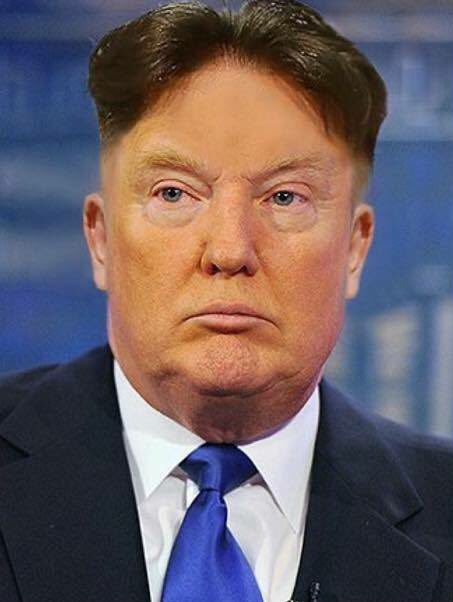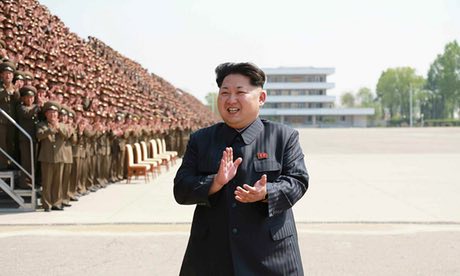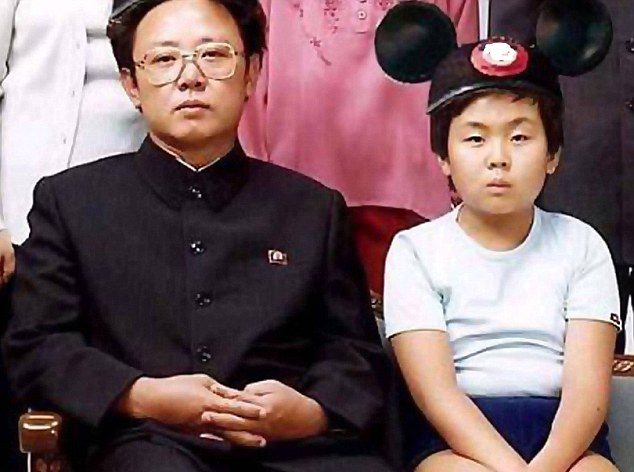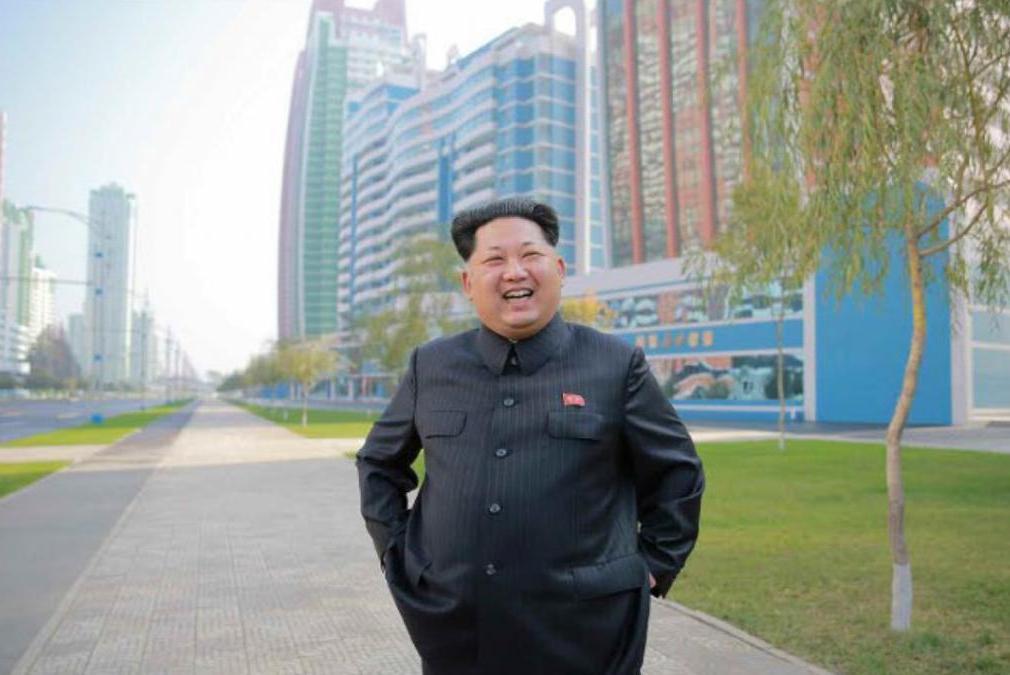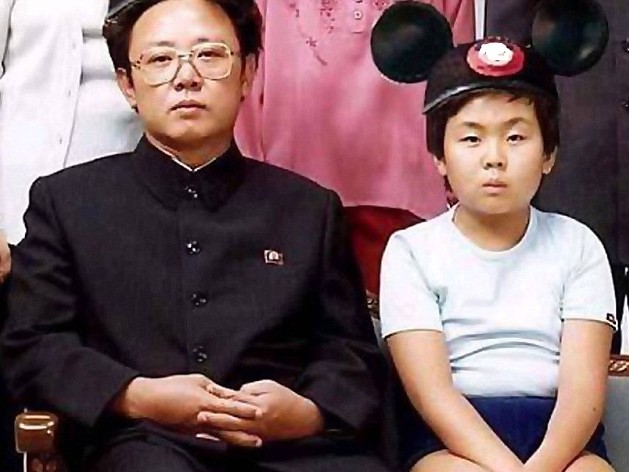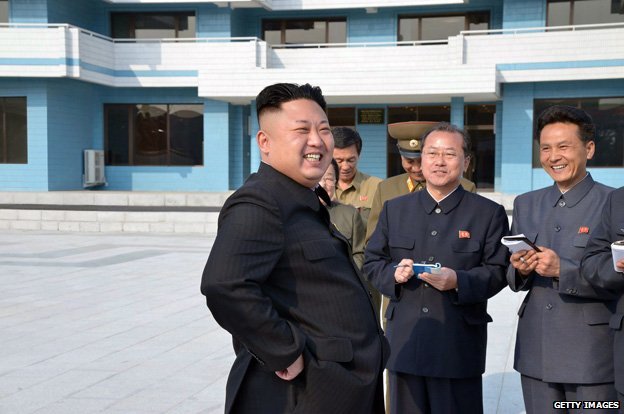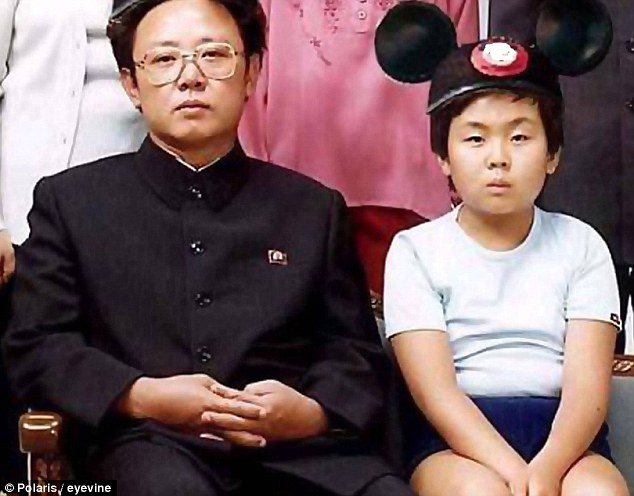Priorities.
— Afflictor.com (@Afflictort) August 11, 2017
Harry S. Conman spent part of his day dangerously baiting Kim Jong-un, a guy who murdered his own half-brother with a nerve agent, saying of his North Korean counterpart that “if he utters one threat, in the form of an overt threat…he will truly regret it and he will regret it fast.” Either Trump’s bluffing and will be in a weakened position when his bluff is called, or he means it and lots of people will die horrible deaths and not just in North Korea.
Three notes of hope that we may avoid Armageddon: 1) Trump is a cowardly bullshit artist, 2) The coterie of generals in his midst may overrule him even if that’s not Constitutional, and 3) Kim Jong-un, despite the fratricide, may not be nearly as crazy as he’s made out to be. Evil beyond belief, for sure, but perhaps very calculated and focused on his personal survival. Let’s hope.
In a Reddit Ask Me Anything now underway, Washington Post North Korea reporter Anna Fifield is answering questions about the fraught situation. A few early exchanges follow.
________________________________
Question:
How much NK talk is normal saber-rattling?
Anna Fifield:
A lot of this is normal April/August saber-rattling.
The wild card this time is not North Korea, but Donald Trump. Trump is acting in ways that are different from his predecessors — look at the repeated threats on twitter in the last few days — and the North Koreans are not quite sure what to make of it.
The chances of misinterpretation/accidental conflict are significant — and much more likely than a deliberate start to a war from either side.
One important thing to note: North Korea has said it will retaliate IF the United States strikes it. It’s not threatening to go first. And the U.S. would probably only strike (a pre-emptive strike) if it saw an imminent threat to the nation or its allies.
So deterrence remains the best option for everyone.
________________________________
Question:
If North Korea collapses what would happen to there current nuclear arsenal?
Anna Fifield:
That’s a great question and we simply do not know the answer. A lot would depend on how it collapsed. An outside invasion would be very different from, say, a military coup. If there was a coup from within, we could expect the generals to retain control of the nuclear weapons. But imagine if there was a sudden collapse and we saw nuclear scientists taking off over the Chinese border with suitcases full of fissile material. Scary stuff.
________________________________
Question:
How likely is Kim Jong Un to accept a deal where he hands over power in North Korea in exchange for exile, a guarantee of no harm or prosecution, and a life of luxury for himself and his generals in China?
Anna Fifield:
Well, no one is offering him that kind of deal — that we know of. I think Kim knows that his life would be much worse if he were not the leader of his own totalitarian state, regardless of whether he’s living in a gated compound in Beijing or if he’s in a worse situation.
Kim’s number one priority — the whole reason for the nuclear weapons, the personality cult, the brutal system — is staying in power. And he’ll do anything to hold onto it, as we saw with the way he got rid of his uncle and half brother.
________________________________
Question:
If KJU goes what will replace the regime?
Anna Fifield:
We have no idea. A military junta like in Myanmar? Gradual economic reform without political change like in China? An American administrator like in Iraq? Re-unification with South Korea? We have no idea how this regime would come to and end and what would come next.
What I would note though is that we are in a historically abnormal situation. Korea was one for thousands of years, so the division of the last seven decades is a blip in history and almost all Koreans, North or South, pine for the day when they’re one again. It constantly amazes me how similar North Koreans and South Koreans remain today, despite more than 70 years of enforced separation.
This is a tragedy. One people divided by an arbitrary line.•
________________________________
Question:
Why hasn’t North Korea suffered from the same internal strife that usually plagues regimes like this? Coups, ambitious generals — the Kim dynasty seems to be effectively immune to it. Is the dynasty’s hold over its population so absolute that even during times of mass starvation the military or other political factions will be unable to even attempt to seize power from Kim?
Anna Fifield:
The North Korean regime keeps such a tight grip on the population that people are afraid to question or criticize the regime to anyone except their closest family members — and sometimes not even to them.
If you criticize Kim Jong Un or suggest that he’s unfit for the job in any way, you could be banished to the countryside if you’re an elite in Pyongyang; you could be executed by anti-aircraft gunfire, as Kim had done to several top officials, including his own uncle; or you could be sent to a re-education or labor camp, forced to dig holes or break rocks for hours and hours a day, with nothing more than a bowl of thin soup made from salt and corn for your meals. Sometimes whole families are punished for one person’s actions.
All this has served as a good incentive for people to keep their mouths shut and their heads down. Plus, outside Pyongyang, most people are too busy trying to feed their families to think about political activity.
People who become disillusioned enough with the regime to act usually defect rather than rebel.•

